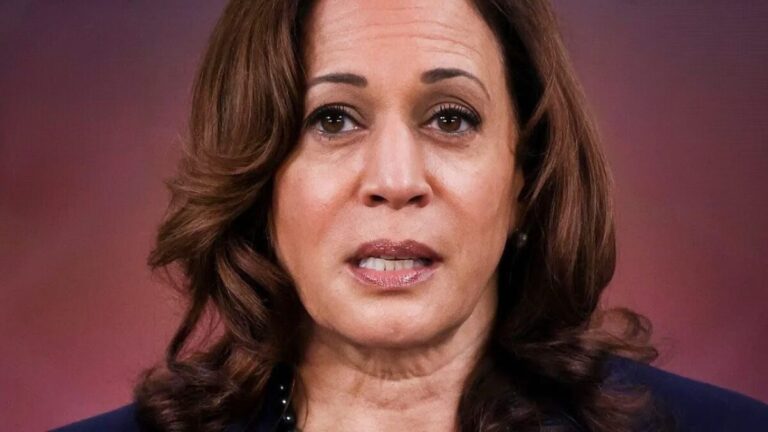In a surprising admission, President Joe Biden recently revealed that he was so exhausted during his debate with former President Donald Trump that he nearly fell asleep on stage. This candid disclosure sheds light on the challenges Biden has faced and the mounting concerns surrounding his energy levels and cognitive abilities.
As the Biden administration seeks to portray the president as energetic and capable, this revelation has sparked a flurry of questions and speculation about the true state of the commander-in-chief’s health and stamina. The implications of Biden’s confession extend far beyond the debate stage, raising broader concerns about his ability to effectively lead the nation during these critical times.
Biden’s Exhaustive Pre-Debate Schedule
According to the White House press pool, Biden acknowledged that his grueling travel schedule in the days leading up to the debate had taken a significant toll on his energy levels. “I decided to travel around the world a couple of times … shortly before the debate … I didn’t listen to my staff … and then I almost fell asleep on stage,” the president reportedly stated during a private fundraiser.
The New York Times, however, contradicts this claim, reporting that Biden had been back in the United States for nearly two full weeks prior to the debate. During this time, he reportedly maintained a light schedule, took daily naps at Camp David, and rarely started work before 11 a.m. This discrepancy raises questions about the accuracy of Biden’s explanation and the transparency of his administration’s handling of his health and well-being.
The Concerning Trend of Cognitive Decline
The Biden administration’s efforts to shield the president from public scrutiny have only fueled further speculation about his cognitive state. The New York Times report highlighted numerous incidents during Biden’s recent trips to Europe that turned into viral videos on social media, showcasing embarrassing moments and raising concerns about his mental acuity.
These concerns are not limited to isolated incidents, as the report suggests that those closest to Biden have noticed a concerning trend. “Those closest to Biden have noticed that he increasingly appeared confused or listless, or would lose the thread of conversations,” the report states, adding that these incidents are “growing more frequent, more pronounced and more worrisome.”
The White House’s Evasive Stance
The White House’s response to these concerns has been equally troubling. The administration has refused to allow the White House physician, Dr. Kevin C. O’Connor, to answer questions from the media about Biden’s condition. Furthermore, the White House has denied that Biden has ever taken “Levodopa or other drugs” for a condition that many speculate could be some form of dementia.
This evasive stance has only heightened the public’s unease, as it suggests a lack of transparency and a desire to shield the president from further scrutiny. The administration’s unwillingness to provide a comprehensive and candid assessment of Biden’s health has fueled suspicions and eroded public trust in the government’s handling of this sensitive issue.
The Tightening Grip of Biden’s Inner Circle
As the concerns surrounding Biden’s health and cognitive abilities continue to mount, his inner circle has tightened its grip, shielding him from further public exposure. According to an NBC News report, Biden’s son, convicted felon and drug addict Hunter Biden, has now begun attending official White House meetings, a move that has shocked many within the administration.
This reported move to further insulate the president from the public eye and potential missteps raises even more questions about the motivations and priorities of those closest to Biden. The administration’s apparent efforts to protect the president from his own mistakes and the public’s gaze only serve to deepen the sense of unease and lack of transparency.
The Implications for the Democratic Party
Biden’s exhaustion confession and the broader concerns surrounding his health and cognitive abilities have far-reaching implications for the Democratic Party. As the party’s standard-bearer, Biden’s struggles have the potential to undermine the party’s credibility and weaken its hold on power.
The specter of a president who is struggling to maintain his energy and focus during crucial moments raises questions about the party’s ability to effectively govern and lead the nation. This, in turn, could have a ripple effect on the party’s electoral prospects, as voters may lose confidence in the Democratic leadership’s ability to address the pressing issues facing the country.
The Need for Transparency and Accountability
Ultimately, the Biden administration’s handling of this situation highlights the pressing need for greater transparency and accountability in the highest levels of government. The American people deserve to have confidence in their leader’s health and cognitive abilities, and the administration’s evasive and defensive posture has only eroded that trust.
As the 2024 election cycle approaches, the Biden administration must grapple with these concerns and address them head-on. Failure to do so could have far-reaching consequences, not only for the president’s legacy but for the future of the Democratic Party and the country as a whole.




Leave a Comment